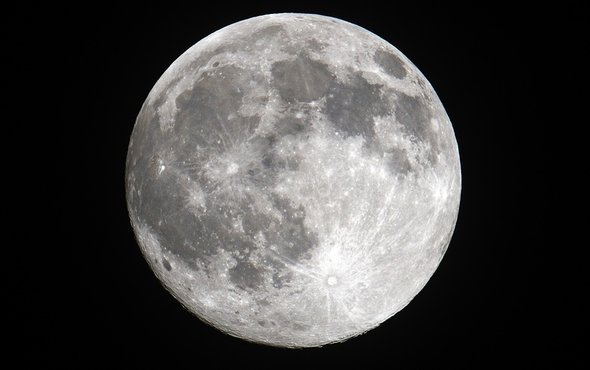(单词翻译:单击)
听力文本
This is Scientific American — 60-Second Science. I'm Christopher Intagliata.
On March 27th, 1964, a huge earthquake struck the Prince William Sound, off the coast of Alaska. (CLIP: "Out in the gulf of Alaska, the ocean bottom plunges, then heaves upward a full 50 feet, and a wave starts racing toward the shore...")
The quake is the second most powerful ever recorded, at 9.2 on the Richter scale, and it killed more than a hundred people. And just like the devastating Sumatra quake of 2004... or the Chilean quake in 2010... the Great Alaska Earthquake struck right around the time of the full moon. Coincidence?
In 2016, Japanese researchers concluded that large earthquakes might indeed be more likely to occur during times of significant tidal stress... when it's either a new or full moon. And the news rumbled through the media, despite the study's small sample size, of just a dozen large quakes.

Now seismologist Susan Hough of the U.S. Geological Survey has done a much larger analysis. She plotted more than 200 big quakes—magnitude 8.0 or above—over the past four centuries, looking to see if they were more likely to strike on certain days of the year, or during key phases of the moon. The answer, neatly summed up in the study's one-word abstract? "No."
The study is in the journal Seismological Research Letters.
That's not to say we don't know of certain factors that actually do increase the risk of quakes. Hough says the ground injection of wastewater, oil and gas production, fracking, and damming up waterways can in some cases cause quakes. Just don't blame it on the moon.
Thanks for listening for Scientific American — 60-Second Science. I'm Christopher Intagliata.
参考译文
这里是科学美国人——60秒科学。我是克里斯托弗·因塔利亚塔。
1964年3月27日,阿拉斯加海岸的威廉王子湾遭遇强震袭击。(音频片段:“在阿拉斯加湾,海底突然塌陷,之后又隆起足足50英尺,一波海浪开始冲向海岸……”)
这起地震的震级为里氏9.2级,是有记录以来的第二大强震,造成超过100人死亡。和2004年毁灭性的苏门答腊地震或2010年的智利大地震一样,阿拉斯加大地震也在满月时发生。这是巧合吗?
2016年,日本研究人员推断,大地震可能的确更易发生在有巨大潮汐应力的时期,也就是新月或满月时。虽然这一研究使用的样本量很小,只对12次大地震进行了研究,但是这一消息还是被媒体传播了出去。
现在美国地质调查局的地震学家苏珊·霍夫进行了更大规模的分析。她将过去4个世纪发生的200余起8.0级以上的大地震绘制成图表,以研究这些大地震是否更可能在一年中某些特定日期发生,或是否更易在重要月相时刻发生。研究结果可以用一个词概括:不是。
这项研究结果发表在《地震学研究通讯》期刊上。
这并不是说我们对某些增加地震风险的因素不了解。霍夫表示,废水注入土地、石油和天然气开采、,水力压裂以及筑坝拦水有时可能导致地震。只是不要再怪罪月亮了。
谢谢大家收听科学美国人——60秒科学。我是克里斯托弗·因塔利亚塔。
译文为可可英语翻译,未经授权请勿转载!
重点讲解
重点讲解:
1. be likely to do sth. 可能(做…)的;有(…)倾向的;
例句:Someone allergic to milk is likely to react to cheese.
对牛奶过敏的人可能对奶酪也有不良反应。
2. either or (表示在两者或多者中择其一)或者,要么;
例句:You can apply either personally or in letter.
你可以亲自接洽也可以写信。
3. sum up 简而言之;概括地说;
例句:Obree summed his weekend up in one word: 'Disastrous.'
奥布瑞用一个词总结了他的周末经历:“灾难。”


